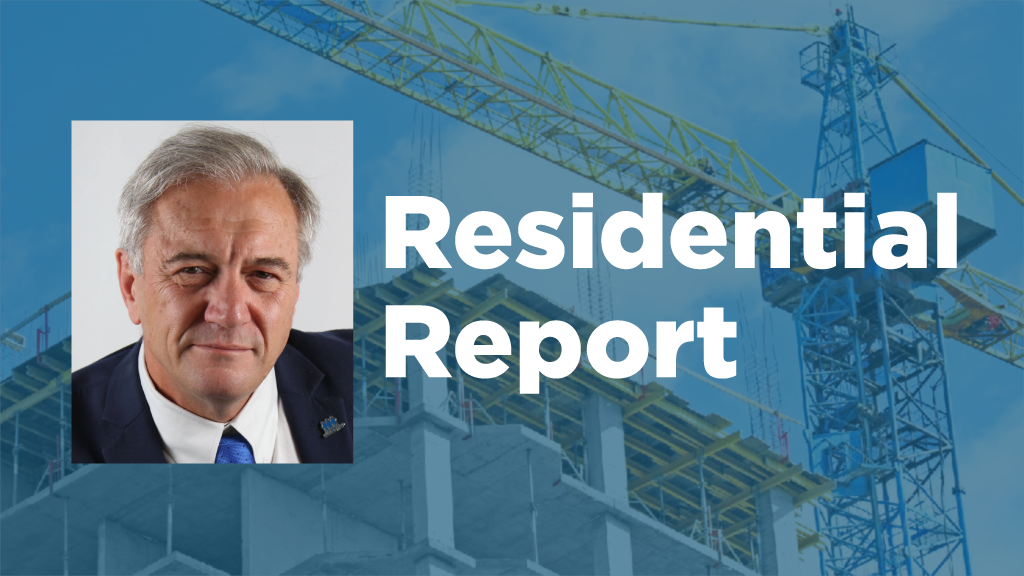Ronald Reagan, 40th president of the United States, offered up some words of wisdom when the issue of protectionism arose in America.
“Our peaceful trading partners are not our enemies; they are our allies,” he said. “We should beware of the demagogues who are ready to declare a trade war against our friends — weakening our economy, our national security, and the entire free world — all while cynically waving the American flag.”
However, Donald Trump, America’s 47th president, seems to have missed the lesson, as he has opted to slap a hefty 25-per-cent tariff on aluminum and steel imports, including from Canada, starting March 12.
Trump previously threatened 25-per-cent across-the-board tariffs on Canadian imports, with a lower 10 per cent levy on Canadian energy, and says those tariffs could still proceed in early March.
The moves will have a severe impact on the construction industry on both sides of the border. There will be no winners — only losers, as the two countries and supply chains are so interconnected.
The Trump administration’s unprovoked action to impose tariffs is reckless and will lead to Americans paying more for our steel and aluminum. The U.S. relies on the materials for many products.
We are the largest foreign supplier of steel and a major supplier of aluminum to the U.S.
An even greater threat, though, is the capricious uncertainty of Trump.
Chaos seems to be the order of the day in Trumpworld. The goalposts are constantly shifting. However, the move to impose tariffs is a particularly abhorrent and unprecedented abrogation of the Canada-United States-Mexico Agreement — one that puts our industry in peril.
It’s a form of economic terrorism that will create enormous uncertainty. The added costs for the industry come at the worst possible time. Housing supply has already been hammered by exorbitant taxes, fees and levies and excessive bureaucracy and red tape. This will only add to the mix.
The residential construction industry is presently facing tough times. Inflation and high interest rates have taken a toll, housing starts are abysmal and the tax burden on new homes, bureaucracy and a dysfunctional development approval process is further stymieing new housing development.
We are in the midst of a housing supply crisis caused by the fact that builders can’t build houses people can afford. Adding to the cost of materials via tariffs will only make matters worse.
Supply chains in Canada and the U.S. are intertwined. In addition to steel and aluminum, the U.S. also imports lumber, cement and gypsum. Here at home, the residential construction industry relies on imported materials such as plywood, glass, metal fittings, light fixtures, ceramics, electrical parts and plumbing and mechanical components, among many other items. Tariffs would only raise prices and ultimately lead to higher costs for housing in both countries.
Tariffs on building materials would lead to a dramatic shift in supply chains. Canadian builders would likely seek alternative sources for materials, such as domestic and foreign producers. There would be disruptions as supply chains are adjusted and projects could be delayed.
Prices for new homes as well as rentals would likely rise in both countries due to supply problems. The ripple effect of higher material and housing costs could also lead to broader inflation.
RESCON has condemned the threat of tariffs as there would clearly be no winner. Indeed, both Americans and Canadians would feel the pain. To exemplify, the budget lab at Yale figures tariffs would raise prices in the U.S. and cost families between $1,900 and $7,600 a year.
It is our hope that, in the end, cooler heads will prevail. In 2018, when the previous Trump administration imposed tariffs on imports of steel and aluminum from Canada to the U.S., we responded with a series of significant countermeasures on steel, aluminum and other products.
The result? They were lifted in 2019.
This time around, RESCON has joined a steering committee of the Canada United States Trade Council, a coalition that will be providing governments guidance on trade issues facing Canada.
A start would be to reduce regulation and remove internal barriers between provinces and territories to make it easier to move goods and services across the country. Eliminating domestic hurdles alone could offset the cost of tariffs and add $200 billion to the Canadian economy.
We must be nimble and adjust quickly to ensure that Trump’s tariffs are a gamble that does not pay off.
Richard Lyall is president of the Residential Construction Council of Ontario. He has represented the building industry in Ontario since 1991. Contact him at media@rescon.com.












Recent Comments
comments for this post are closed